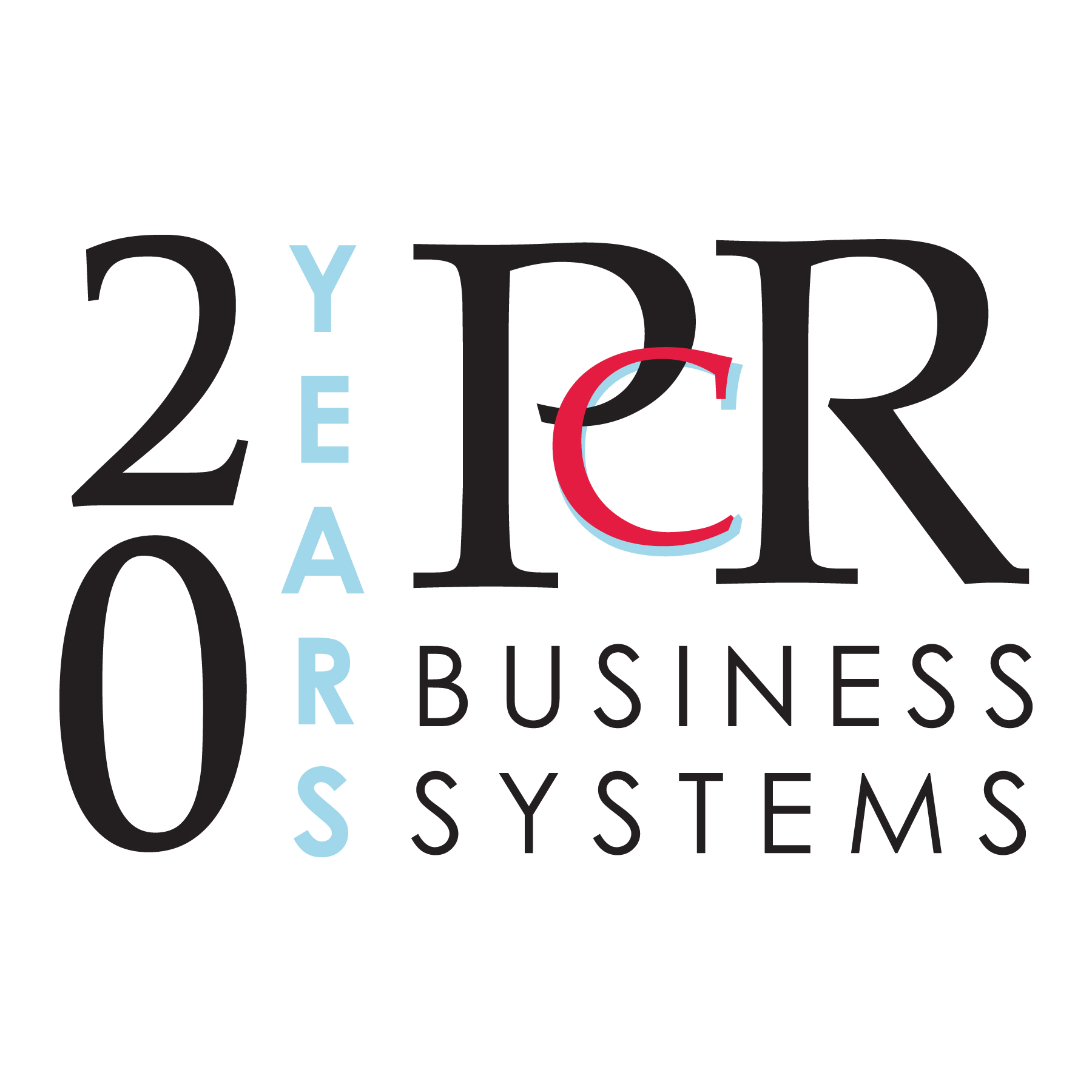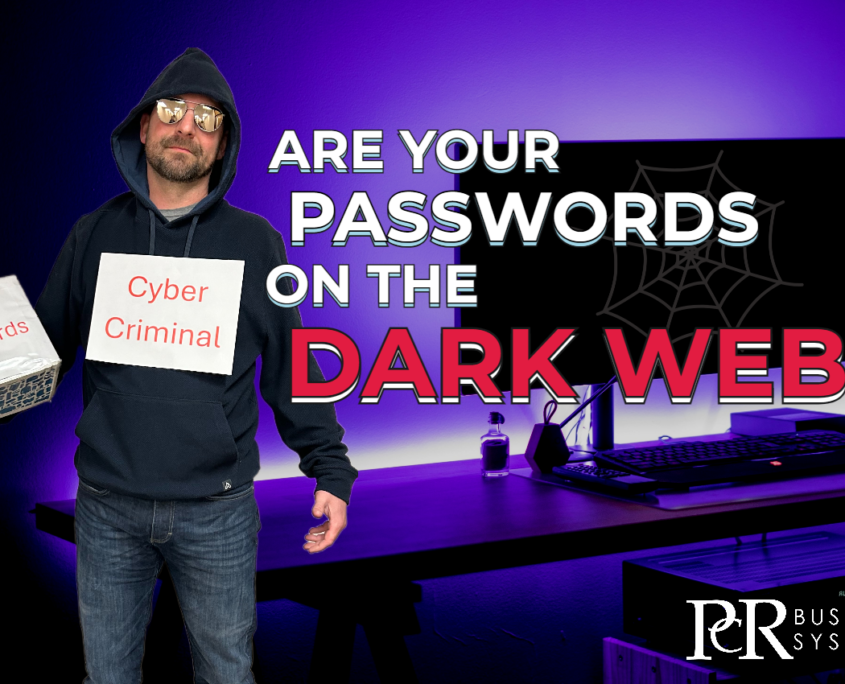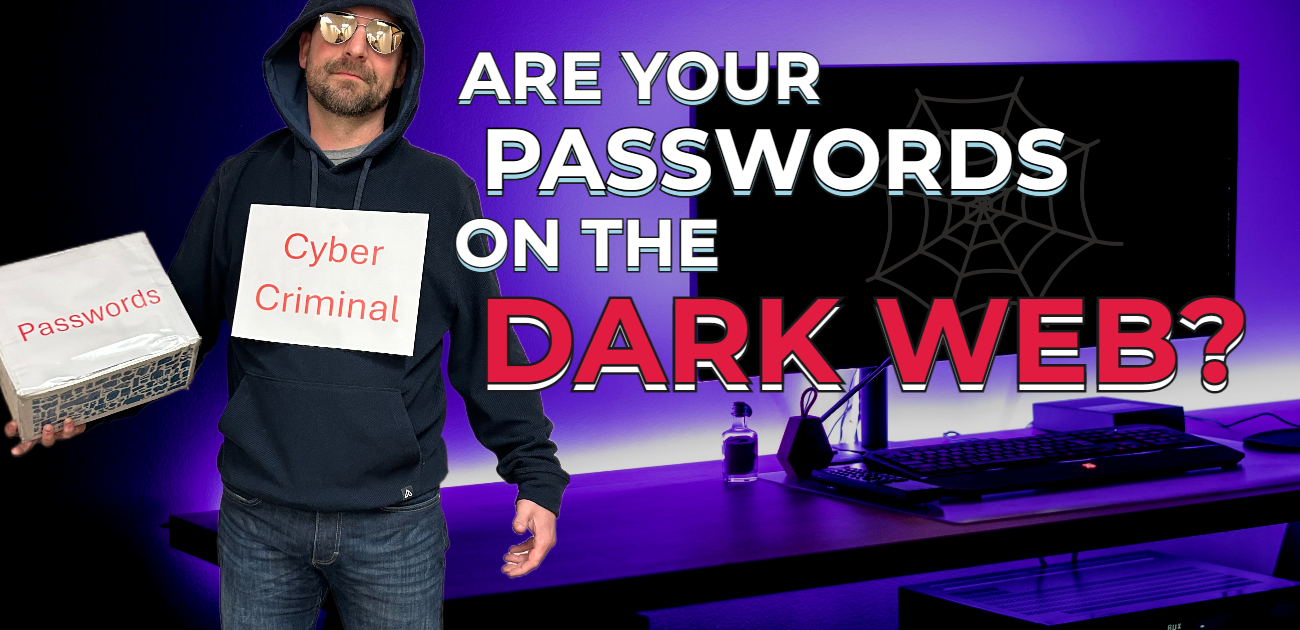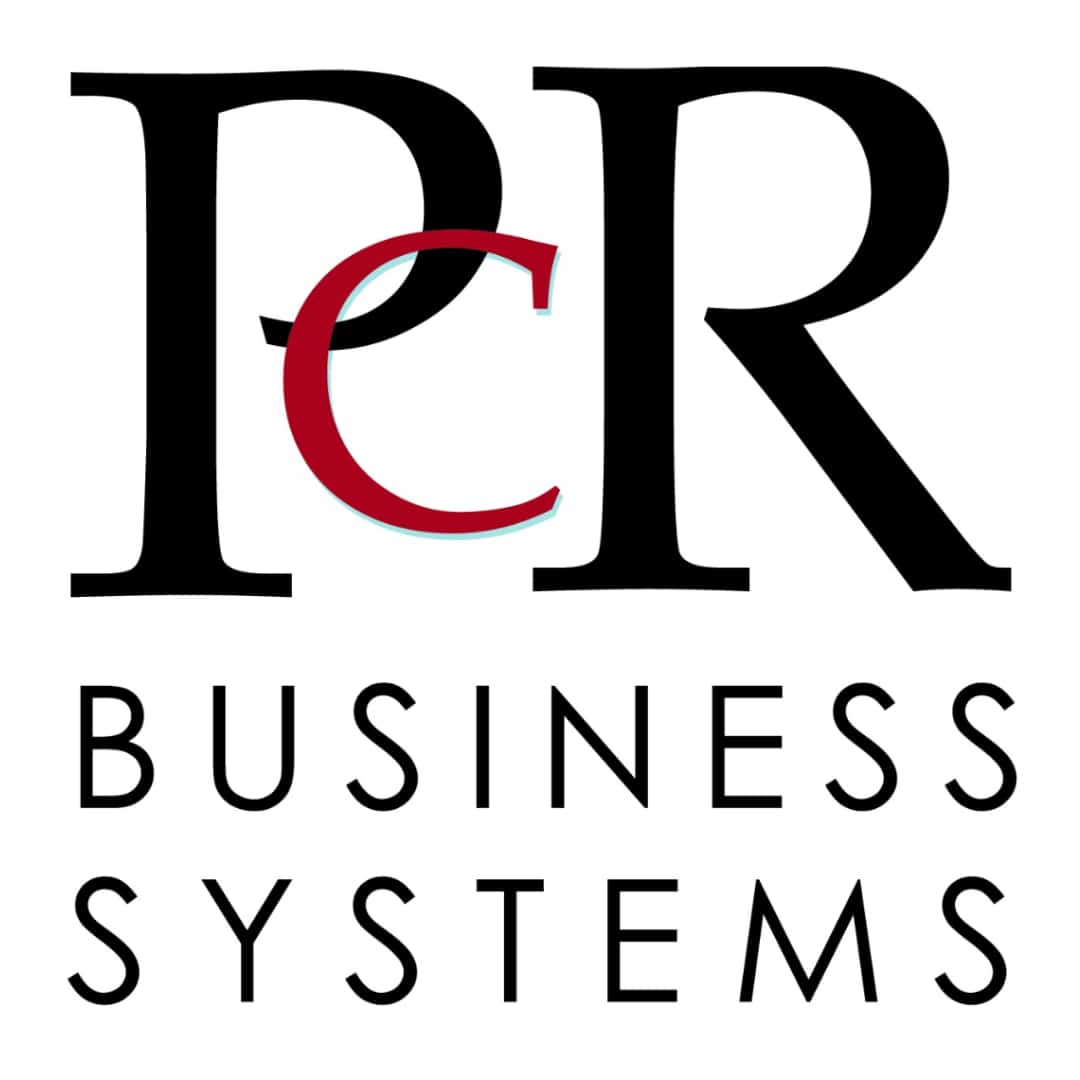What is the Dark Web?
What Every Business Leader Needs to Know!

By: PCR Business Systems
In our most recent video, we discuss what the Dark Web is and what every business leader needs to know to keep their data their data safe from Dark Web cybercriminals.
What is the Dark Web?
The Dark Web has three parts: the Surface Web, the Deep Web, and the Dark Web.
Surace Web: This is what we use in our daily searches and online activities. These are pages you’ll find using regular search engines and popular browsers. Here you’ll find your company’s website, restaurants, etc. The surface web is what we’re all used to seeing when we go online.
Deep Web: The Deep Web is a part of the internet that isn’t searchable using traditional search engines like Google or Yahoo. Many deep web pages are hidden behind paywalls or are password-protected sites used to access databases, journals, or other documents. There is nothing illegal or sketchy about the Deep Web, it simply contains information you wouldn’t find in your day-to-day online searches.
Dark Web: The Dark Web is what we’re concerned about, and what business leaders need to be familiar with. The Dark Web consists of encrypted websites and information that require special authorization and software to access. You can’t access the Dark Web from your standard web browser. While not all data on the Dark Web is bad or illegal, this is where cyber criminals hang out, buying and selling illegal items, services, and data (including passwords, bank accounts, and other private business and customer information).
Are your passwords and private data on the Dark Web?
Unfortunately, they probably are. We’ve run hundreds of cybersecurity scans for Ohio businesses, and almost every time I do, we find their passwords on the Dark Web. That’s not meant to scare you, but rather to remind you that proper password management is vital to the security of your business.
How do your passwords end up on the Dark Web?
When there is a data breach, hackers often gain access to large databases that include private information, such as usernames, passwords, email addresses, and other information from websites or services that have been hacked.
Most business owners we meet with are unaware their information is on the Dark Web because they had no knowledge a breach occurred in the first place. Think about all the websites and emails you access daily and where you enter your username and password. It’s virtually impossible to keep track of your online history and if any of the sites experienced a breach.
Unfortunately, once your data hits the Dark Web, it’s often sold by cybercriminals to be used for account takeovers, phishing attacks, credential stuffing, and other illegal activities that can destroy your business if not dealt with promptly.
What can you do?
The first step in securing your business from cyber threats is with a Dark Web Scan. The scan will reveal the depth of any breach and help you learn why your data is on the Dark Web in the first place – so that you can take a proactive approach in making sure your systems are secure moving forward.
The next thing is to make sure you use proper password management. This includes:
- Not using the same password twice
- Using strong passwords that you change frequently
- Ensuring multi-factor authentication (MFA) is enabled on all devices and websites that access your private data
- Keep tabs on all of your accounts for suspicious activity
- Talk to a trusted cybersecurity firm about what you and your staff need to look out for
The most important thing to remember is that no matter how large or small your business is, you are a target. It’s imperative that you stay one step ahead of hackers and keep your information off the Dark Web.
Don’t hesitate to reach out to us directly if you have any questions about the Dark Web or your company’s cybersecurity. You can schedule a quick call with PCR President, Pat Carroll, directly here on his calendar.






